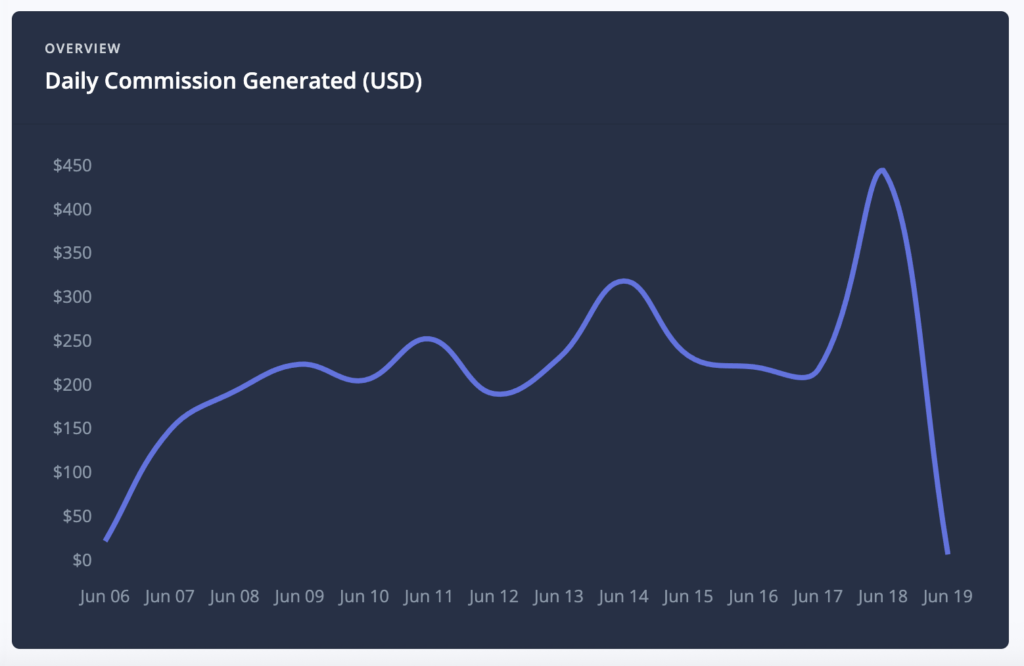This is kind of a gripe post with overtures of seriousness pointing out some of the challenges bloggers face. By all accounts, I have nothing to complain about. Every day I wake up excited to start working on my portfolio of sites and write for Fat Stacks. It doesn’t get any better than that.
Nevertheless, as with all good things, there are aspects that aren’t perfect. I love traveling but don’t care for airport security lines, annoying people next to me on the plane, not getting a hotel room I’d hoped for etc. In the big scheme of things, traveling by plane and staying in a hotel is a luxury and yet most folks who do it can easily find grievances about the entire endeavor.
It’s the same with blogging and pretty much everything in life.
So, what are the worst parts of being a full-time blogger?
Here they are…
1. Copyright trolls
My beef with copyright trolls is they are free to make any infringement allegation they want even if it’s totally not true. They rely on software to blast out infringement claims by the thousands. I then have to drop everything and spend time proving I do have a license for images.
I suspect some trolls make the stuff up strong-arming unsuspecting publishers into paying high fees needlessly. After all, it’s scary getting some outfit claiming you broke the law and will be sued for thousands or more. I’ve received those emails. The first was scary. It’s par for the course as a blogger. Now I fight back. Most go away. There were a couple of instances where I was in the wrong. I admitted it and paid the fee. I could have challenged the fee as well. Trolls have to prove damages. It would be interesting to see how a photographer supports a claim that my using their image cost them $600. That doesn’t add up but maybe they can. But I couldn’t be bothered. Most claims I’ve successfully fought off.
Copyright law is antiquated. I’m not saying there shouldn’t be copyright protections in place. I rely on them. The internet has changed the entire copyright landscape and so the laws should be brought up to date to reflect that. For example, level the playing field by implementing a shotgun clause in infringement claims. If the troll is wrong, they owe the amount they claimed. That would eliminate automated trolling.
2. “YOUR WEBSITE SUCKS!!”
Fortunately, I haven’t received many such emails from visitors but I have here and there over the years. It’s never pleasant. Actually, given how many ads are permitted on sites these days, I’m surprised I don’t get more complaints from visitors. Maybe people are immune to it by now seeing as most publishers are trying to squeeze every nickel out of every visitor with ads.
While such emails are unpleasant it’s better than living and dying by Yelp and Google reviews. That would be a real nightmare; I empathise with local businesses who have to carefully manage those very public reviews.
3. The 50 telephone calls I get from “web design” companies after registering a domain
If you’ve registered a domain, you probably received several calls from various web design companies over the subsequent month. I do every time I register a domain which means I’m constantly fielding such calls. It didn’t take long to learn a few of the callers were the same company over and over. At that point I politely asked that they remove my phone number from their call list. They said they would. They didn’t.
When they called again, I had a fun 2 hour conversation with them. I was transferred multiple times through the more advanced or higher up sales people as I talked about hiring them for all my SEO needs for all my sites plus content plans… the whole shebang spending tens of thousands per month. I then said “I wasn’t interested and that I handle all that stuff myself.” The person I was talking to was super angry and had the temerity to say “I wasted his time.” Ha!!! Their entire marketing plan involves wasting people’s time. I then explained that I had politely asked repeatedly in the past that they remove my cell phone number from their call list and that they said they would. They didn’t. So just like they wasted my time repeatedly in the past, I’ll waste their time every time they call. I haven’t heard back from that “Web design” company again.
4. Seemingly random Google updates
Overall, Google is fairly transparent about how to rank web pages in Google. I’m sure the Big G doesn’t reveal all the secrets but for the most part it’s not rocket science at least for the stuff I’m ranking (info articles). Where Google gets frustrating for many of us bloggers is how a seemingly random update dramatically chop traffic to sites after an update. It’s like one day Google likes the site and sends plenty of traffic and the next day Google decides “sorry, you only get half the traffic you had.” These swings make this business difficult. After all, if you’re getting plenty traffic and it’s in an upward trajectory and aren’t doing anything against Google’s TOS, one would think it’s safe to assume everything is being done right… until it’s not with no explanation.
I like Google. I get a lot of traffic from Google. But these random updates make this business more difficult than it need be.
I’m not some Google fanboy who has never felt the Google wrath. I lost 50% of my revenue from the infamous Google Penguin update in 2012. That was draconian; out of the blue that largely changed SEO forever. I’ve suffered several 20% to 25% traffic drops since then over the years from various updates. It happens. It’s part of being a publisher. My contention is it’s too random.
I know it’s futile to complain about Amazon’s commissions to affiliates but just imagine how much more Amazon affiliates would earn if the affiliate cookie window was 30+ days like most merchants. Of course, that’s why Amazon does what it does but it could be an amazing source of revenue. I often shop Amazon in sessions. I’ll add to the cart but not pull the trigger for a few days. Or I’ll add something I need to buy to a list and search on Amazon and buy a week later.
6. Facebook… everything about Facebook
Facebook is one of the most annoying companies and platforms on the planet. It sends just enough traffic to one of my sites that it’s worth using but as a platform it drives me nuts. The ad platform is difficult to use. What’s worse is ad rates are never consistent. You increase the budget of an ad and cost per click goes up. The cost per click should go down. The creator studio is a hassle. Algo changes make it impossible to invest big time into Facebook. The customer service is non-existent. I’ve had my page shut down multiple times because I had to verify my company. That was a two-week nightmare. All-in-all Facebook is one of the most annoying companies to deal with as a publisher. I could go on and on. I’m sure I’m not the only publisher who finds Facebook a terribly difficult platform to use.
7. Content length in order to rank
I get the Google algo is a computer so it needs text in order to know what content is about but generally speaking, content needs to be longer than necessary in order to stand a chance in the Google SERPs. This has long been a problem… ever since the Google Panda update years ago. Before Panda, pages with 200 to 400 words ranked great. The problem was the SERPs were littered with thin content. Now the content length pendulum as swung too far the other way for many keywords.
8. Scaling content with a totally uncertain ROI outcome
If you’ve read Fat Stacks for any length of time you know I’ve tried so many different sources for content that it’s impossible to keep track of. I’ve tried multiple self-serve platforms, many content services and have hired a good number of freelancers directly. Despite jumping around over the years always in pursuit of the best content for a reasonable rate, I’ve managed to get some decent content sites published. Perfect? Nope. Room for improvement? Always. But they’re decent and they perform reasonably well.
One of the most talked-about struggles among colleagues is content sourcing and scaling. It’s the scaling that’s the most difficult part. If I just wanted one article per day, I could do that. That’s not all I want. I want to publish 10 to 20 articles per day. It’s complicated due to the long delay in any particular article generating revenue, if it ever does. If the whole thing worked where I spent $1 dollar on content today and earned $2 from it in one month, it would be a no-brainer. Sadly, that’s not how it works. It takes 3 to 18 months for content to pay off, and that’s a good article. Many articles lose money. It’s this uncertainty that makes it a complicated business model.
9. The “if one site is good, seventeen is better” trap
I used seventeen because that’s how many sites I have underway that I’m growing (some slowly, some faster if all goes to plan). Launching too many sites is an easy trap to fall into. Be careful. While I currently have 17 sites in many niches, only some will succeed in the next couple of years. Others I’ll kick along to see if they have promise. The point is because it costs almost nothing to launch new sites, too many bloggers launch and TRY to grow more than they should. I include myself in that group.
Keep in mind that any second site you launch you will need to outsource content which means it’s a cash flow suck for at least 12 months and probably longer. Can you sustain negative cash flow for 12 to 24 months?
10. Few people understand the business
What do you say when someone asks “what do you do?” These days my response is “I own an online publishing company” or “digital media company.” Some folks follow up asking for details. Most just nod with a look as if they understand. For folks that follow up with more questions, it usually take a bit to explain the business. Most assume I build sites for clients so I make it clear that’s not it. Some folks end up totally getting it. Some don’t. It’s not one of those glamorous jobs featured in movies and TV shows. It’s a relatively novel type of business that isn’t widely known. I really shouldn’t include this as a gripe because it’s not but it is interesting to me that the concept is so often misunderstood. Maybe I just do a terrible job explaining it.
11. People “teaching” blogging when they don’t have a clue
I know I beat this to death but I followed plenty of bad advice years ago from folks who talked a big talk but didn’t walk the walk. I should have looked more closely into what they knew but when new in the industry, it’s impossible to distinguish your “my only blog is the blog I tell you how to blog” and someone who is in the trenches with real world niche sites. Fortunately, these days there are more folks who teach based on actually being in the trenches with real niche sites. However, there are still many with only their one blog from which they get their info and teach that. The reason that is bad is that blogs about blogging is a business niche which is a very different thing from a consumer-end niche such as lifestyle or hobby niches. Very different. How do I know? Because I have 17 niche sites plus Fat Stacks. I run Fat Stacks as a business very differently from my other niche sites. It’s apples to oranges.
Before you buy anything from anyone, ask them if the course is based on real niche sites earning big bucks or is it just fodder they’ve gleaned running a site teaching you how to blog?
12. Too many questions
I work with a VA I hired many years ago. She’s one of the best hires I ever made. She now manages the other VAs. One thing I really appreciate about working with her is she understands that asking questions should be done when absolutely necessary. Some folks believe they’re being helpful or dutiful by asking a million questions for direction. Those people don’t stick around long. Maybe some employers and managers like working with these folks but I don’t. The fewer questions the better. I really appreciate folks who understand the difference between important and unimportant questions.
13. Long, confusing emails
This gripe extends from the “too many questions” gripe. Some folks send far too long emails. Once again, my chief VA has mastered the art of email. Most of her emails consist of “Got it” or “Copy that”. That’s it. Most of the in-house writers that work for me never ask me a question. They just write. They correctly assume that if there’s an issue I’ll let them know. However, some writers insist on sending frequent useless updates and far too many questions.
I’ve received some emails that were so long and confusing I had no idea what the question was. In these cases, I either ignore them or reply with “Sorry, I’m not sure what you’re asking. Can you condense it into one to three sentences?”
14. Failure to follow/read instructions
This doesn’t happen much, fortunately. But here and there I deal with it. Just this morning I received an article filled with images from sources not set out in the instructions. I can’t use the images because that would be copyright infringement. My content briefs set out where to get images but some writers just go and put in images from any old site.
Another instruction too often ignored is “write an interesting and engaging introduction”. It’s either ignored, missed or the writer can’t do it because they’re not a good writer. The intro in articles is one of the main ways I assess writers. If the intro is boring, I block those writers. That’s how important introductions are to me.
15. Tech glitches and outright tech catastrophes
Do this work long enough and eventually a site will crash. This doesn’t bother me too much if I’m around and can get in touch with hosting service right away because it’s usually fixed within minutes. Any crash beyond that is annoying and a big problem.
The most annoying tech glitches I’ve dealt with are malware attacks to my sites. Fortunately, now that I’m with Rocket.net hosting, that’s not an issue. The security with Rocket.net is awesome; totally built-in at the server level. If you want to batten down the hatches security-wise, move to Rocket.net.
16. New tech
How often do you become familiar with new tech or a new platform and then it changes on you? It sucks. My latest struggle with the new Google Analytics. By default it creates the G-XXXXXX ID and platform. I wouldn’t really care but outfits like AdThrive and Mediavine need the Universal Analytics ID. That means creating both. I kind of figured it out but the last thing I want to spend time doing is trying to figure out something as routine as Analytics. That’s just one example of many.
17. Assume I’m always available
This extends outside of work. I suspect most self-employed folks have experienced this. Friends and family who need help ask the self-employed people assuming they’re always available. They’d never ask someone who has a job and must take a vacation day to help. Yet, as a self-employed person, it’s not like I can just stop working. Stuff has to get done. It’s true I have flexibility but me taking a day off is just as much of an inconvenience to me as someone who has to cash in a vacation day. The fact is it’s hard to say no because 99% of my days I literally have nothing scheduled or anything I absolutely, must do. It’s not like I have a trial or surgery to do or plane to fly or a meeting to attend. Of course, my lack of schedule is one collateral perk that makes this blogging gig so great.
18. Huge sites often fetch lower multiples when sold
I could sell $30,000 sites at a 50X monthly net income all day long. But getting 50X multiple for my bigger sites isn’t going to happen. 40X would be good. Buyers who drop high six figures or seven figures on sites don’t overpay. They want a deal. There aren’t as many buyers of 7 figure sites as $30K sites. While I like to daydream that my bigger sites are worth 50x, in reality, that’s very unlikely unless I got lucky and some big company saw one of my sites as an excellent opportunity… synergy and all that mumbo jumbo.
While it’s hard to complain when talking about high six-figure and seven-figure paydays, what this valuation difference across site sizes does is it makes for a compelling case to sell sooner rather than hold and grow. It throws a wrench in the decision-making process, that’s all.
19. Publishing amazing content only to remain outranked by a piece of junk
We’ve all had this happen. We go all out on an article and no matter what we do, it doesn’t get to its rightful position 1 in Google. When we’re beat by an equal or better article, that’s a pill we can swallow. But when it’s some piece of junk that enjoys ranking supremacy due to links and/or domain authority, it sucks. It happens all the time. It’s just a part of this blogging business.
20. Having to stay organized (at least trying)
I’m very unorganized. I’m sloppy. I loathe filing things away or spending time keeping things organized, whether digital or hardcopy. I struggle to keep my keyword research spreadsheets up to date. My desk is littered with important paperwork. While somehow it all works it’s also true I’ve ordered and published articles on the same topic twice. I’ve lost important documents. My computer desktop has so many files it’s nearly unusable. I really should put more effort into organization but it’s just not my style. I’d be better off as a niche site publisher if I were.
21. Rabbit holes
Aka bright shiny objects. It’s so easy to end up wasting time on some frolic. An example is reading someone is having success with Twitter. At this stage I know Twitter is not worth it for niche sites yet I could see myself wasting a day or two monkeying around on Twitter just because someone said they got some traffic from it.
We can’t do everything. We shouldn’t do everything. I make much better progress when I stick to what’s working.
22. The work is NEVER finished
You don’t clock in and out as a blogger. There’s no end to what can be done. While I like this working lifestyle more than clocking in and out (by far) it takes discipline to call it a day. I tell myself it’ll never be finished so there’s no point in working myself to death now. To combat this challenge I set realistic completion goals each day. If I finish one big task per day, that’s a good day. A big task might be writing one article or moving a site to a new theme or setting up some experiment on a new platform such as email or something else. If one initiative gets done, that’s a good day. The rest is gravy. That way when it’s late afternoon, it’s usually pretty easy to stop.
For projects that require multiple days I do my best to plan realistically and budget multiple days. That way when I’m not finished on day one, that’s fine because that’s what I expected.
Where I run into trouble is when something I thought I’d finish in a day isn’t finished. That’s hard to leave.
What doesn’t bother me but maybe should
Copycat sites
People copy my stuff all the time. It used to bother me but not anymore because I’ve found those sites don’t have staying power. They disappear pretty fast so they’re not a threat.
Google dependency
I know I’m one update away from disaster which is why I’m growing multiple sites. The thing with Google is despite random updates overall it’s a pretty consistent and plentiful traffic source. You can count on Google traffic more consistently over the years than any social media platform. The only traffic source better than Google is email… but in order to grow email traffic you need more subs which means more Google traffic. See how that works. I accept that I’m largely dependent on one traffic source. I don’t love it but it is what it is and it is an easy traffic source if you’re patient.
Revenue fluctuations
While display ad revenue is relatively stable, it still fluctuates quite a bit over the course of a year. Monthly revenue can double from January to November. It’s great when it’s November but sucks when it’s January. To combat this, I do my best to set up an expense structure that works with my lower-earning months.
Despite my gripes, I’m sticking with it
Every job and business has its challenges. Grass is very, very seldom greener on the other side. I know that. All things considered, this blogging gig is a great gig.

Jon Dykstra is a six figure niche site creator with 10+ years of experience. His willingness to openly share his wins and losses in the email newsletter he publishes has made him a go-to source of guidance and motivation for many. His popular “Niche site profits” course has helped thousands follow his footsteps in creating simple niche sites that earn big.






